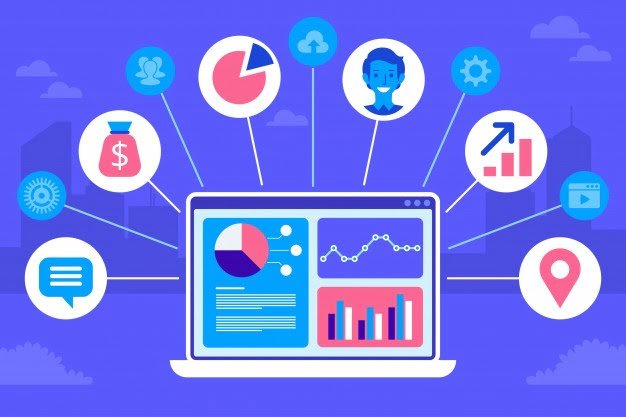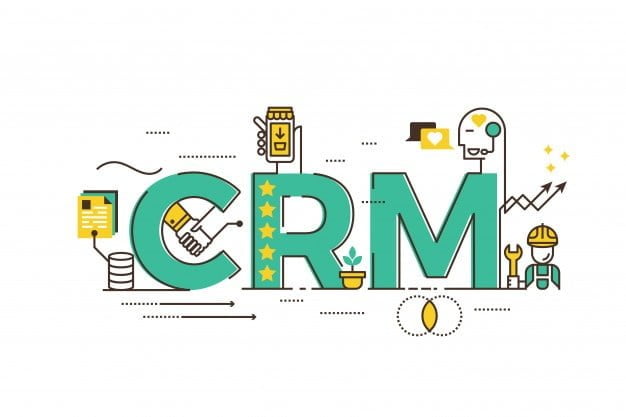Upcoming trends in CRM technology that will change the way we do business
by Abdul Aziz Mondal Technology Published on: 18 January 2021 Last Updated on: 27 January 2025

In the digital age, where companies can interact with customers at the click of a button, maintaining and nurturing customer relationships has become extremely important. Customers also expect brands to reach out to them in a personalized and meaningful way. A white paper from Smarterhq stated that 70% of millennials felt frustrated with brands sending them irrelevant emails. So, it comes as no surprise that meaningful customer-business interaction is integral to any business’s growth.
This is where CRM or Customer Relationship Management comes in. CRM software, tools, and solutions help brands improve and keep track of their customers interactions. Since most of the communication between a company and its customers (and leads) happens online, businesses now have an unprecedented opportunity to reach out to a vast, previously unimaginable audience.
Efficient and increased business communication with a broader audience produces a ton of customer data scattered across multiple communication channels (like email, social media, brand website, etc.). As you can guess, this user data can turn out to be a gold mine for businesses when used right. However, doing so can be extremely challenging, given the sheer size of this data.
CRM solutions address this issue by acting as centralized databases that pull together customer data from multiple channels into a single organized whole. More than that, they offer seamless access to the same data across the organization.
What Can CRMs do?

As simple as they might sound, CRMs are incredibly useful and have evolved to be integral to businesses. Modern CRM solutions utilize their robust functionalities to track customer histories and communications, even on an individual scale in some cases.
Naturally then, CRMs have extensive applications within the marketing, sales, and service sectors. CRMs can help personalize marketing campaigns for individual customers and improve conversion rates by allowing sales reps to track customer journeys through the sales funnels. They automate productivity-draining, data-entry tasks on the end of the sale; and time-consuming campaign management and execution on the marketing side. All-in-all, CRMs help with almost every aspect of running a business, making the process more organized, efficient, and easier to execute.
The Future of CRM

Top CRM Companies develop solutions that might already seem fully-fledged, cutting-edge software innovations (and to a great extent, they are), but the innovations are far from over. The CRM industry is estimated to be the fastest-growing software category globally, with expected revenue to reach as high as $80 Billion by 2025.
With such massive growth potential, CRM systems will likely continue to grow, diversify, and specialize within various niches, further advancing in functionality and usability. As it has always been the case, current technologies will be revolutionized by recent advancements, and CRM is no exception to the trend.
Advances within the realm of Machine learning, AI, BI, etc. are likely, some more than others, to impact CRM technologies’ evolution.
Upcoming trends, likely to improve CRM technologies
1. BI with CRM

Business Intelligence or BI is about utilizing available data to produce implementable insights that help a given business grow, while CRM is about nurturing the business-customer relationship to achieve the same. Simply by the nature of their operation, CRM ends up as a reservoir of relevant data but lacks the functionality to translate it into actionable insights. Meanwhile, BI offers impactful advice but requires data to derive insights from.
As you can see, CRM and BI end up complementing each other very well. Together they cover their weaknesses and offer much more than what they do individually. Integration of the two thus seems inevitable.
In some sense, this shift has already begun. Implementation of advanced analytics and other analysis tools within CRM systems is a testament to the fact that customer data is worth way more than what it is currently used for. It shouldn’t be a surprise to see advanced CRM solutions that also double as BI and BA solutions in the near future.
2. CRMs and Blockchain
Blockchain technology is primarily known to makes cryptocurrencies possible but at its core, blockchain tech is essentially a data management tool with far-reaching implications. Simply put, a blockchain exists across networks of computers that share copies of any given data. Every transaction made concerning the data is highly encrypted and recorded in a ‘block’ distributed across the network.
These blocks add up to form a ‘chain’ that essentially acts as a ledger or record of all data transactions available across the network. Because every device within the network has access to the entire transaction history, blockchains are decentralized and transparent. Given these features, blockchains have spread like wildfire within the tech world and have a lot to offer the CRM industry.
With concerns increasing around data privacy issues, companies today need to be very cautious with handling customer data. Implementing blockchain technology within CRM systems offers military-grade security for databases and defends customer data by ensuring transparency. Blockchain technology can also benefit CRMs with better wallet management for customers and even loyalty programs, further increasing customer trust and engagement.
3. CRM and AI

We live in a world being increasingly populated by algorithms and artificial intelligence. Most businesses in some way or another, already utilize Artificial Intelligence. But the fact that AI can be incredibly useful when handling data and predicting trends, making it a great tool to be used with CRM systems.
One good example of how AI can help with customer engagement is the widespread use of voice assistants and bots. As AI improves at Natural Language Processing, most customer interaction will be automated by AI. Behind the scenes, AI can help CRM in other ways like intelligent lead generation and management and precise task automation for things like setting off triggers, customer data management, and customer segmentation.
AI can also help with understanding and predicting market trends and customer behavior. Lead nurturing and follow-ups with existing customers can also be massively improved with the use of AI as it gets better at understanding human emotions and behavior.
All-in-all the use of AI will be a complete game-changer for CRM technology, massively boosting its capabilities while increasing efficiency and speed.
Conclusion
CRM technology has benefited over the decades from a multitude of technological advancements and is likely to continue to do so. As businesses evolve and customer demands change, CRMs will have to adapt to a dynamic environment. If previous trends are any indicators, CRM systems will continue to grow and acquire greater capabilities possibly even becoming an all-in-one customer engagement platform. As disruptive technologies become commonplace within our world, much of how we do business today will be replaced by something new. However, there seems enough indication to believe that CRM will continue to dominate the business world, not threatened but benefiting from these innovations.
Read Also:



































































































